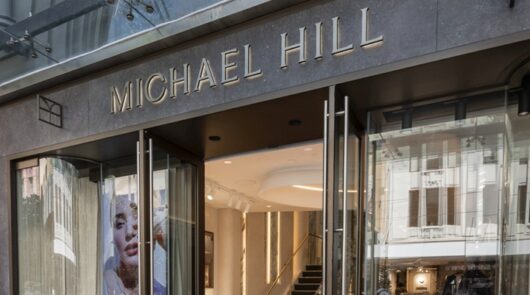It’s no secret that the cost-of-living crisis and the cost-of-trading crisis are crippling the retail industry with both consumers and businesses feeling the crunch. But the recent wave of sustainable businesses closing their doors in Australia hints at a new and alarming trend. Slipper specialist Monte, fashion label Arnsdorf and blanket manufacturer Seljak Brand have all announced that they are closing down in the last few months. The recent spate of sustainable and slow brands leaving the m
ing the market raises questions about retailers’ ability to survive if they have built ethical consumption and production into their business models.
The emerging sustainable brand recession in Australia highlights not only the current economic crisis but also a pivotal moment in retail.
The rising costs
Not too long ago consumers were willing and able to pay a higher price for products that accounted for sustainably sourced materials, fairly compensated workers and environmental production – but now mindful household budgets have overtaken thoughtful consumption.
At the same time, small and independent businesses with less negotiating power are more susceptible to rising costs and may have a harder time maintaining cash flow than others.
“As a small business trying to maintain a strong brand built on the quality of product, it is challenging to establish the right price point that customers are willing to pay,” Will Carter, co-founder of Monte, which told customers it was closing down in a social media post in early June, told Inside Retail.
“So, when prices increase, it can be difficult to move the higher production costs onto the consumer thus eating into your margins.”
Similarly, Seljak Brand struggled to transfer the cost increases to consumers. In March, the business announced that it was closing down and has been selling products at a steep discount in recent weeks.
“Rising costs of goods made in Australia and overseas, plus international shipping, has pressured our margins for over two years now. There are only so many price increases we can pass onto our customers,” Karina Seljak, co-founder of Seljak Brands, told Inside Retail.
Both Seljak and Monte experienced a pandemic boom and built communities around providing consumers with ethically produced goods that provided comfort in a time of crisis.
“Of course, consumers are feeling the rising costs as well and are reprioritising how they spend — investment products such as our blankets take a hit as travel and other experiences are back on the cards post-pandemic,” said Seljak.
The founders of Monte point out that one of the primary challenges in sustaining a small business while trying to compete in a market of giants is reaching economies of scale amidst rising costs.
“To name one example, the iOS changes and the saturation of digital marketing on Facebook, Instagram and now TikTok has meant that businesses with big budgets, more experienced staff and innovative design techniques overshadow the smaller or emerging businesses,” shared Carter.
“You just don’t get seen by the right people enough of the time – it is not the effective marketing tool it once was if you don’t have a big budget and don’t know what you’re doing,” he added.
To the rescue
While other businesses may be able to cut costs by shifting production to another country with lower wages or sacrificing the quality of their materials, this usually isn’t an option for sustainable businesses.
“Unlike businesses whose primary aim may be to maximise profits, sustainable businesses cannot compromise on their responsible sourcing and production approaches, lest they undermine their brand promise,” said Seljak.
There is a call for the government and regulators to ease the cost of trading for small local businesses that are manufacturing ethically made products.
“It leaves little room to move when the going gets tough. This is really where government regulation and support needs to come in, in the form of investment, tax breaks and other incentives, to make sustainable design achievable for businesses and accessible for consumers,” suggested Seljak.
A hopeful landscape
Despite closing the doors on their respective businesses, the founders of Monte and Seljak Brand are adamant there is a market for slow and sustainable local retailers.
“There have been some great success stories in Australia particularly in the made-to-measure segment – brands who focus on smaller SKUs like E Nolan, A-Esque and Push Pull create exclusivity and demand,” Lib Carter, co-founder of Monte, told Inside Retail.
“It’s a great model. Tough, but what the future should look like. Lean and local production,” she added.
While consumer spending is often financially motivated, there is also room for it to be environmentally considerate.
“There remains a growing consciousness about how we’re collectively treating the planet and each other so there will continue to be demand for things that are made with care and made by craftspeople who are properly treated and celebrated,” concluded Seljak.
“Overarching business paradigms will change to meet the moment we’re in, whether by choice or not, and there are exciting opportunities for design and retail to lead in this transitional space.”







